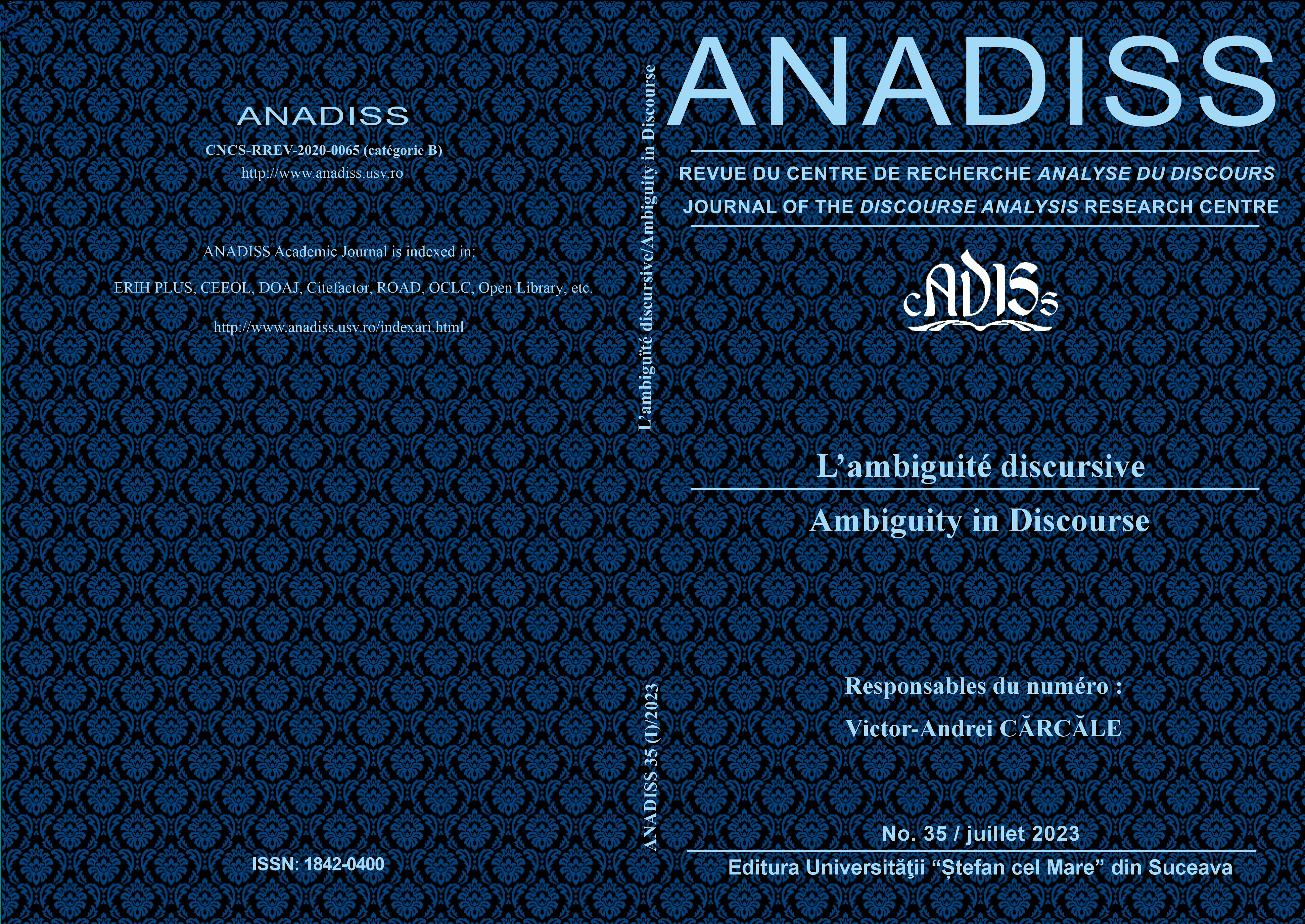Exigences lexicographique à l’égard du terme stylistique et celui poétique
Lexicographic requirements with regard to the stylistic term and the poetic term
Author(s): Natalia AzmanovaSubject(s): Applied Linguistics, Lexis, Stylistics
Published by: UNIVERSITATEA »ȘTEFAN CEL MARE« SUCEAVA
Keywords: specialized languages; terminological definitions; metalanguage; stylistic terminology; poetic terminology; linguistic perspective; lexicography;
Summary/Abstract: Thanks to research over the last decades on specialized languages, the status and methods of terminology, terminological definitions, term characteristics, the relationship between term and word, etc., radical changes have occurred in the theory of terminology today. The sphere of metalanguage in Romance languages (French), which interests us, has a dynamic description of terminologies from a linguistic and literary perspective.The sphere of metalanguage, which concerns us, its lexicographic plan, has been the subject of research in Romance languages. In French, for example, we have the dynamic description of stylistic terminology from a linguistic and literary perspective, see, for example, the works of Mr Ion Manoli Dictionnaire des termes linguistiques et poetiques (2012) and Dictionnaire des termes litteraires (2022).For the lexicography of the Romanian language, see Gheorghe Dragomirescu’s Mică enciclopedie a figurilor de stil (1993), Dorel Fînaru’s Dicționar de retorică poetică (2020), or Mihaela Popescu’s Dicționar de stilistică. In English lexicography, both yesterday and today, such research is still lacking. Until today we do not have a dynamic description of stylistic and poetic terminologies from the linguistic perspective stricto modo, following the constitution of terms in various fields of knowledge (Old Rhetoric and New Rhetoric, Prague, Copenhagen, Geneva, Paris, Heidelberg linguistic schools, etc.) from the diachronic aspect, the semantic and pragmatic behaviour of terminological units, their integration and functioning in texts with different degrees of specialization; the lexicographical definition of these terms becomes ultra-difficult if one takes into account their diversity, fixed in dictionaries. When we use the terms metalanguage, metalinguistic, metalimbic, we have in mind the terminological language specific to a field of research. The closest synonym is specialized language. The boundaries between general and specialized language and between specialized language variants are very flexible, with lexical items constantly moving from one area to another.
Journal: ANADISS
- Issue Year: 19/2023
- Issue No: 35
- Page Range: 111-116
- Page Count: 6
- Language: French

